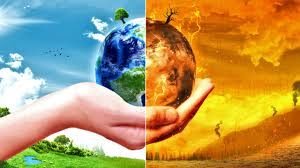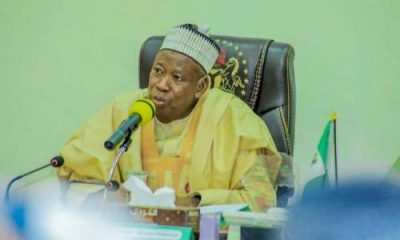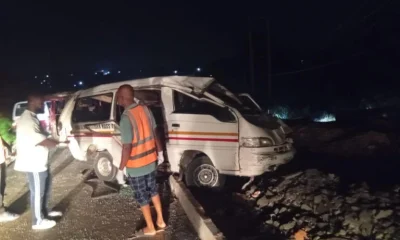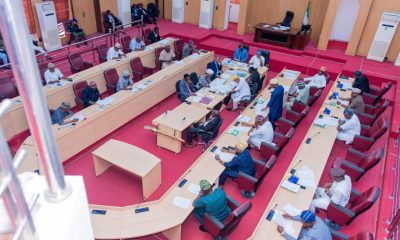News
The Media’s Role In The Climate Change Narrative

By Osehobo Victor Ofure
I am sitting down and wondering that from acting as a overseer to raising awareness, as a journalist, I have an important role to play in fighting climate change and environmental degradation which awareness is at a low ebb in Edo state; but this potential remains largely untapped.
The importance of climate change awareness is enshrined in Article 6 of the United Nations Framework Convention on Climate Change, UNFCCC, which calls upon its parties to among other things, develop and implement educational and public awareness programmes on climate change and its effects.
In the same vein, the Nigerian government’s plan to mitigate the impacts of climate change is contained in the 2011 National Adaptation Strategy and Plan of Action for Climate Change Nigeria, NASPA-CCN.
The plan seeks among others to take action to adapt to climate change by reducing vulnerability to climate change impacts and increasing the resilience and sustainable wellbeing of Nigerians.
The NASPA canvas a set of 13 sector-specific strategies, policies, programs and measures, the objectives of which are to reduce the impacts of climate change through adaptation measures that can be undertaken by government and non-governmental organizations like us including measures that will improve awareness and preparedness for climate change impacts.
Add these to the 2012 Nigeria Climate Change Policy Response and Strategy or NCCPRS which seeks to foster low-carbon, high growth economic development and build a climate-resilient society; through the attainment among others of the objective of significantly increasing public awareness and involves private sector participation in addressing the challenges of climate change.
Media correspondents contribute about 70 per cent of daily content for both print and electronic media outlets. Today, climate change is generally recognized as the greatest challenge to sustainable development, especially in a developing country such as Nigeria, of which Edo state is a part.
It has also been acknowledged that the country is experiencing adverse climate conditions with negative impacts on the welfare of millions of people.
As media correspondents we have the unique ability to help accelerate climate action through advocacy and education. We have a duty to make the audience find what we report newsworthy and interesting. We can pass climate change information in various articles and programmes to the public. We are best placed to educate the citizens on climate change while entertaining them at the same time.
All journalists have the unique ability to help accelerate climate action through advocacy and education, but our potential to help achieve the global climate goals still remains largely untapped.
Our own lack of awareness of climate change issues is one of the major challenges. There are also challenges of training which include inadequate opportunities, especially for the myriads of practicing correspondents or freelancers.
The lack of training has impact on our capacity. Yet in an age when the climate crisis is alarming, the media is supposed to be robust in their role as public watchdogs.
Not only are we seeing gradual climate change incidents like the rising heat waves and rainfalls as less newsworthy than one-off events, we are also finding difficult to relate to because of the complex subject matter of Climate change.
The key, then, is for us as journalists to find ways to centre climate and environmental issues on human stories. How is climate change affecting pastoralism with the herdsmen attacks all over the place? We can narrate the story of victims of such attacks. Or is it the use of firewood and charcoal or illegal logging in the rural country?
Another way for journalists is to engage people on climate issues by sharing positive stories about solutions being developed by individuals, communities and businesses. We must seek to make the climate and environment a top priority in business and politics, so environmental journalism will be given the same status as economic reporting.
But public awareness is just half the fight won. Perhaps the most challenging chore of all is grappling with the subject matter itself, as environmental and climate issues often involve intricate facts, terminology and policy language.
As Journalists we often lack the training to understand scientific knowledge thoroughly, and editors today do not have the time and resources to nurture their reporters.
News organizations must invest more in capacity-building workshops for environmental reporters, while as newsmakers they themselves can help the journalists understand the issue by explaining the complex science and policy considerations of climate change.
Without an accurate understanding of climate facts, we run the risk of misrepresenting issues and causing undue panic among readers. We need to challenge myths and misconceptions, as climate change is a widely misunderstood issue. Responsible journalism matters, and ensuring facts are accurate is essential.
However, even while we strive for accuracy, climate change is one area where we can ignore the rule that requires us to present both sides of the story. There is no need to balance the reality of climate change with climate refutation to avoid perpetuating wrong and misleading scientific coverage.
Public and private sector organizations must step up efforts to help us report on these issues more clearly, though we also need to give in return, by giving them as much time as possible to respond.
We can report how companies are taking measures to reduce catbon emissions and improve energy efficiency though data on these initiatives and their effectiveness is often complex and requires time to collate.
We may therefore not be able to provide all the data necessary with a deadline of just a few hours, so we must give newsmakers as much time as possible to respond to queries.
In coming years, journalists covering the environment and climate change can only expect the issues to get more complex and far-reaching. Issues like climate change are inherently global in nature.
The good news is a vast range of resources can help us overcome this. These range from social media and citizen journalism—where virtually anyone with a Smartphone can document issues or become a source—and journalism networks, where journalists can pool resources and ideas, or simply use the organization’s clout as an inroad to conversations with difficult or evasive sources.
Finding new sources of funding can provide us with more resources to tell powerful stories and non-profit organizations that are committed to environmental issues can fund and publish coverage on these issues.
(Osehobo, a journalist and Geography Educator is founder, Initiative for Climate Education and Energy Awareness, ICEEA


















